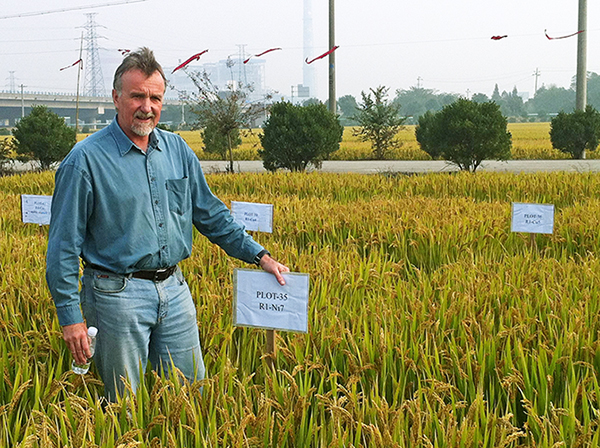Michael McLaughlin
Professor McLaughlin is a Science Fellow in Australia’s Commonwealth Scientific and Industrial Research Organisation (CSIRO) and a Research Professor in Soil Science at the Waite Campus of the University of Adelaide. He has more than 30 years of experience in soil fertility and plant nutrition research, covering more than three continents starting first in Africa, and then in Australia and southeast Asia.
His research now has a global impact and coverage through the establishment of The University of Adelaide Fertiliser Technology Research Centre.
Professor McLaughlin’s research is characterized by a focus on the fundamental mechanisms of fertilizer behaviour in soils and linking these to field observations to improve fertilizer effectiveness.
Professor McLaughlin’s research is also characterized by the using of new methods to examine fertilizer behaviour and effectiveness, such as isotope tracing and dilution methods to determine the fate of added fertilizer and to benchmark improvements in crop nutrition effectiveness.

One of Prof. McLaughin’s merits is that he is also an apt and avid communicator of his research. Due to a severe drought in Australia in 2006, many growers and farmers requested information on how to manage fertilizers during and after the drought, as effects of drought on fertilizer residual value and phosphorus fixation are poorly understood. Prof. McLaughlin and two colleagues quickly wrote and published a factsheet for growers detailing current scientific knowledge of nutrient management under drought conditions and recommendations for fertilizer management in the 2007 season. This material has since been widely used by growers in Australia. Moreover, Prof. McLaughlin has supervised over 20 postgraduate research students from Australia, Brazil, China, Ecuador, Germany, Iran, Malaysia, and Sri Lanka.
As part of its work to promote research on efficient, balanced and environment-friendly fertilization, every year since 1993 IFA grants the award for research that has led to significant advances in crop nutrition. Consistent with its current emphasis on last-mile delivery, IFA recognizes that research alone is not enough to achieve meaningful progress at the farm level. Effective knowledge transfer is needed for the wider adoption of improved nutrient management practices. In that connection, IFA recognizes researchers who have successfully communicated the outcome of their work to the farmers.

